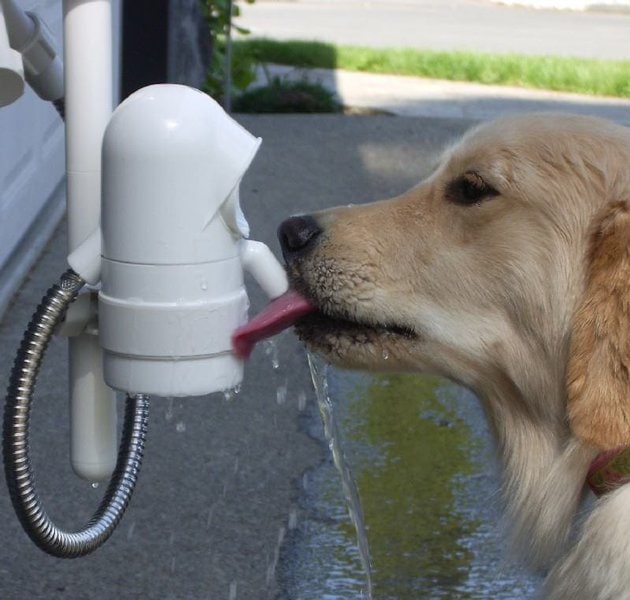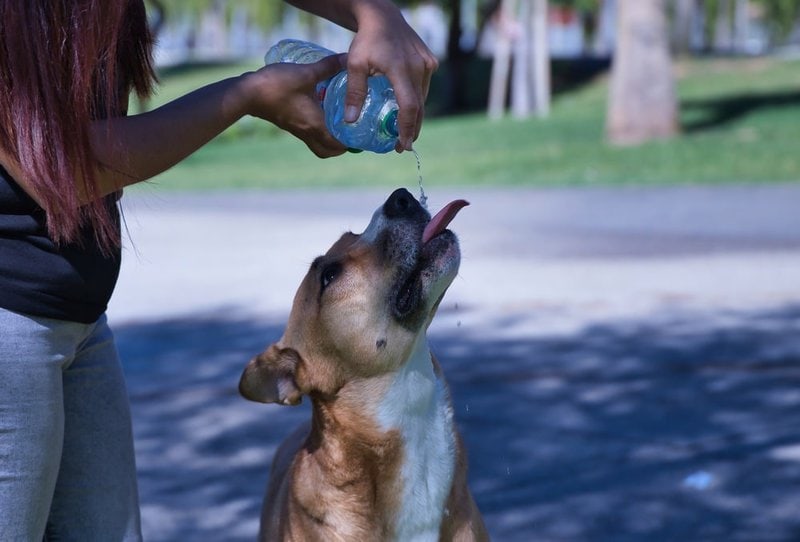Humans and animals are made up of about 60% of water. Hence water is an essential requirement for survival in dogs. But, as a dog owner who interacts with other dog lovers, you might be confused about the difference in choices regarding the best type of water that dogs can drink, especially when many lay claims that distilled water is the best. So can dogs drink distilled water?
Yes, dogs may drink distilled water. However, grave repercussions may arise when you ignorantly give your canine pal distilled water without caution. For instance, dogs can experience an imbalance of electrolytes, leading to brain malfunction when they’re exposed to distilled water over a long period.
In this article, you’ll learn what distilled water is, the benefits of distilled water, why distilled water is harmful, whether bottled water is the same as distilled water and if it’s safe for dogs, and what kind of water is the best for dogs to drink.
Are There Benefits Of Giving Distilled Water To Dogs?
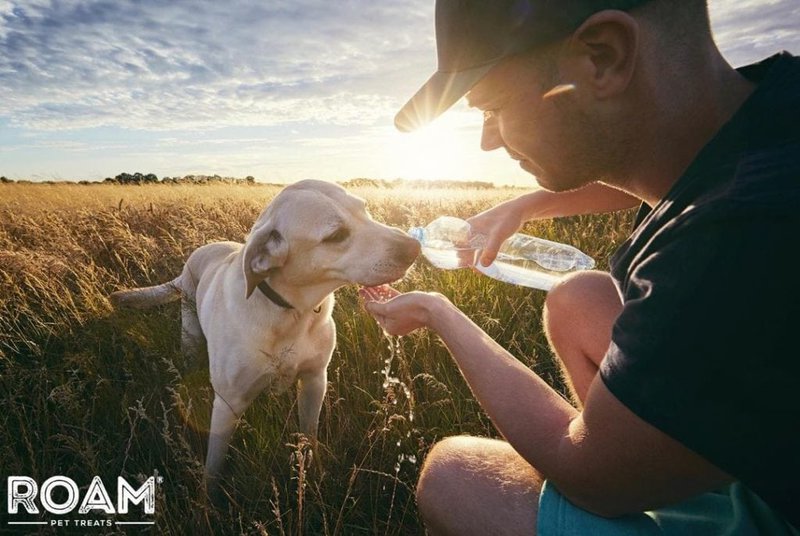
Yes, some benefits come with giving distilled water to dogs, like the prevention of cholera, etc. Nonetheless, most dog parents who allow their furry buddies to drink distilled water do so because they’ve had a firm grasp of certain precautions to follow when administering distilled water.
What Is Distilled Water?
Distilled water is water that has passed through a heating, evaporation, and condensation process. The heated water turns into vapor which is captured and rapidly cooled in a condenser before being dispensed into a collecting container.
The purpose of distillation is to rid water of impurities and sediments that may be present. In order to purify water through distillation, an industrial distiller composed of different chambers is used to get the final product. Crude devices used to distill water at home are also available.
In other words, it’s best to allow your pooch to drink distilled water only when you fully understand the pros and cons involved. That said, here are a few of the benefits dogs can enjoy from drinking distilled water:
Zero Water-Borne Diseases
Distillation cannot occur without the introduction of heat. And it’s the application of heat that agitates water, leading to evaporation, condensation, and finally distillation.
Incidentally, as the water temperature increases, the heat becomes unbearable for life matter, destroying harmful pathogens.
While not a common occurrence, your canine can be infected with cholera or other water-borne diseases after drinking germ-infested water. So, giving distilled water to your furry buddy can prevent such unpalatable experiences.
Furthermore, a dangerous phenomenon known as salt poisoning, which occurs when dogs consume salt-filled water, can be totally avoided when dogs drink only distilled water because it’s generally free from salts and ions.
Zero Recurrence Of Bladder Stones
Uroliths, also known as calcium oxalate bladder stones, are a bladder disease that occasionally occurs in dogs, especially in breeds such as the Yorkshire Terrier and the Lhasa Apso.
Bladder stones occur when excess minerals and salts in the body crystalize to form small rock-like substances that obstruct the urethra and prevent the free passage of urine.
Although treatable through corrective surgery, dogs that have once had bladder stones removed will forever be on a controlled diet, including the absence of tap or bottled water since these types of water contain minerals like calcium that can promote the recurrence of bladder stones.
Therefore, given that distilled water doesn’t contain any minerals and salt, it is the best option for dogs prone to or with a previous history of bladder stones.
Why Is Distilled Water Harmful To Dogs?
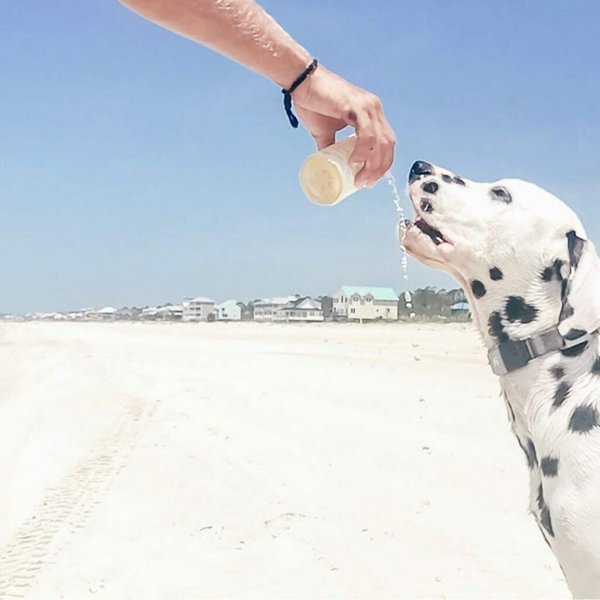
A couple of reasons exist why distilled water is harmful to dogs, one of them being that it causes brain malfunction due to electrolyte imbalance.
Note that ordinarily distilled water isn’t a terrible option. Instead, it’s the absence of a balanced nutrient alongside long-term exposure to distilled water that’s harmful to dogs.
So below is a list of some of the dangers of giving distilled water only:
Electrolyte Imbalance
All animals require ions that give off electric signals—albeit negligible—so the brain and cells can function properly. These minute electric charges regulate osmotic pressure and nerve impulses across synapses.
Interestingly, these animals, especially dogs, can derive electric energy from ions present in natural water.
Therefore, because these ions are eliminated during distillation, dogs that drink distilled water suffer from an imbalance of electrolytes which hampers optimal brain productivity, leading to nerve disruptions.
Nutrient Deficiency
Suffice it to say that not all nutrients necessary for vitality in dogs come from food. Several minerals and chemicals needed for your pooch’s complete health and well-being exist in natural, undistilled water, which, when not available, leads to long-term health issues.
For example, minerals like calcium, sodium, magnesium, and potassium, which are naturally occurring in fresh and tap water, contain elements that induce bone, teeth, and muscle formation in dogs.
Consequently, the absence of these minerals leads to cavities, deformed bones, improper heart contractions, etc., all of which cause pain and discomfort, shortening the lifespan of your canine pal.
pH Acidity
Every element in nature exists in a balanced proportion of atoms. This balance is brought about because of the existence and interaction of negative and positive ions. Thus, the problem with distillation is that it eliminates ions present in water, thereby causing an ionic imbalance.
Consequently, the ionic imbalance leads to the unrestricted absorption of carbon monoxide and negative ions in water, affecting the pH level and increasing its acidity.
Tastelessness
Contrary to popular belief, water isn’t entirely tasteless. Water possesses a particularly unique taste, one that’s gotten from the abundance of different minerals.
Unfortunately, since distilled water lacks the minerals that grant water its unique taste, it feels bland and flat. In essence, the refreshing feeling that comes with drinking mineralized water disappears, causing distilled water to become as tasteless as air.
The unrefreshing taste of distilled water reduces the satisfaction that comes from consuming water, something that may hinder your furry buddy from drinking sufficient water.
Consequently, the reduced consumption of water, especially after a meal, may retard or even hamper digestion, which leads to further health complications in dogs, such as bloating.
Is Bottled Water Same As Distilled Water, And Can Dogs Drink It?
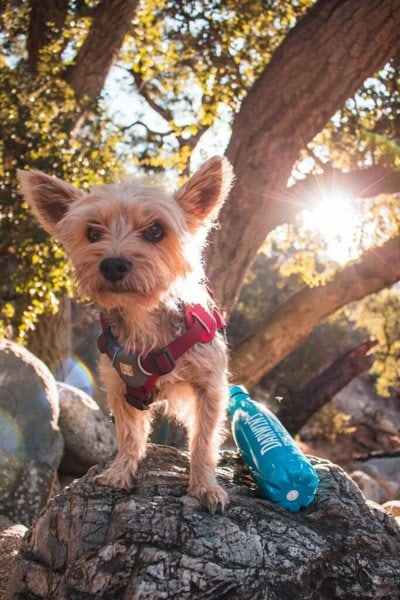
Although bottled water mostly undergoes a purification process, it’s not the same as distilled water, making it safe for dogs to drink. Generally, before water is bottled, it passes through a filtration and chlorination process, eliminating germs and sediment.
Often, some companies, after filtration, cause water to go through a distillation process to further ensure it’s safe for drinking. However, after the filtration process ends, the distilled water is enriched with a measured proportion of minerals and salt to revert to its original mineralized state.
Hence, given that almost every bottled water contains minerals and compounds necessary for optimal body function in dogs, it’s safe to allow your four-legged companion to drink it.
Unfortunately, it’s been scientifically proven that remineralization of water—the infusion of minerals into deionized water—does not guarantee the total replacement of pre-existing nutrients as in the original, unaltered state before distillation.
Is Boiled Water Safe For Dogs?
Yes, dogs can drink boiled water because the heat supplied during boiling destroys microorganisms. Keep in mind that boiling water only kills off bacteria and germs. Thus, fine sediments can still be present in boiled water, making it necessary to filter water before boiling.
Ensure that you wait for boiled water to cool before allowing your dear Fido have a drink. That’s because hot water accidents have been known to occur when dog parents carelessly leave hot items, food, and water in places easily accessible by their dogs.
What Kind Of Water Is Best For Dogs To Drink?
According to popular research, tap water is the best water source for dogs. The reason for this is that tap water is available and easily accessible. Also, since tap water is obtained from a large reservoir treated with chlorine and other chemicals, it’s relatively pure and safe to drink.
However, note that tap water might contain minute sediments or Spirogyra. Hence it’s essential to pass tap water through a filter before giving it to your canine.
